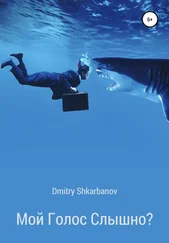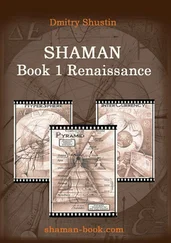Homer finally recovered his wits. Where was the brigadier? How would he explain the inexplicable? Why hadn’t he said anything yet?
Hunter had stopped a little bit further on. He wasn’t even slightly interested in the station packed tight with people out of photographs that were a quarter of a century old. He was staring sombrely into empty space, as if he had run into some kind of barrier, as if there was something hanging in the air in front of him, on a level with his eyes… The old man moved closer to the brigadier and peeped warily under his visor.
And then Hunter struck out.
His clenched fist tore through the air, moving from left to right along a strange trajectory, as if the brigadier was trying to slash someone invisible with a non-existent knife. He very nearly caught Homer, who jumped aside, but Hunter continued his battle. He struck, then moved back, defending himself, tried to restrain someone in a steely clinch, and a second later was wheezing in a stranglehold himself. Barely managing to break free, he flung himself back into the attack. The battle was slipping away from him, his invisible opponent was getting the upper hand. It was harder and harder for Hunter to get to his feet after those silent but crushing blows; his movements became slower and slower, less and less confident.
The old man was haunted by the feeling that he had already seen something like this only very recently. But where and when? And what in hell’s name was happening to the brigadier? Homer tried calling to him, but he was possessed, and it was impossible to get him to hear.
The people on the platform took absolutely no notice of Homer; for them he didn’t exist, just as they didn’t exist for him. They were concerned about something else: they kept glancing with mounting alarm at their wristwatches, puffing out their cheeks in annoyance, talking to the people next to them and checking the red numbers on the electronic clock above the mouth of the tunnel.
Homer screwed up his eyes and looked at it with the others. It was a counter that registered the time since the last train had passed through. But its display seemed unnaturally long, with ten digits: eight digits before the blinking colon and another two – for the seconds – after it. Red dots squirmed, counting off the fleeting seconds and the final digit in the incredibly long number changed: twelve million and something.
There was a scream… And a sob.
The old man turned away from the mysterious clock. Hunter was lying motionless, face down on the rails. Homer dashed over to him and turned the heavy, lifeless body face up with a struggle. Yes, the brigadier was breathing, although raggedly, and he didn’t have any visible injuries, although his eyes had rolled up and back, like a dead man’s. His right hand remained clenched, and only now did the old man discover that Hunter had not been fighting this strange duel unarmed. The handle of the black knife was peeping out from his fist.
Homer slapped the brigadier hard across the cheeks and Hunter started blinking, groaning like a man with a hangover; he propped himself up on his elbows and scrutinised the old man with a blurry gaze. Then he jumped to his feet in a single bound and shook himself off.
The mirage dispersed: the people in raincoats and bright jackets disappeared without a trace, the blinding light went out and the dust of decades settled on the walls again. The station was black, empty and lifeless – exactly as Homer remembered it from his previous expeditions.
All the way to October Station neither of them said another word, the only sound came from the guards assigned to them: whispered conversations and puffing and panting when they stumbled over the sleepers. Sasha wasn’t even angry with the musician, but with herself. And he… But what about him? He was behaving exactly as he ought to behave. Eventually she even started feeling awkward about what she’d said to Leonid – perhaps she had been too harsh with him?
But then, at October, the wind changed. It was perfectly natural. When Sasha saw this station, she simply forgot about everything else in the world. In the last few days she had been in places that she wouldn’t even have believed existed before. But the finery of October eclipsed all of them. The granite floors were covered with carpets, worn completely bald, but still retaining their original patterns. Lamps cast in the form of blazing torches and polished to a high gleam flooded the hall with an even, milky-white glow. People with glossy, gleaming faces were sitting at tables standing here and there, occupied in lazy exchanges of words and pieces of paper.
‘It’s so… rich here,’ Sasha said, bewildered, almost twisting her neck as she gazed around.
‘The Circle Line stations remind me of pieces of pork kebab, threaded on a skewer,’ Leonid whispered to her. ‘They just ooze fat… Yes, by the way! Maybe we could have a bite to eat?’
‘We haven’t got time,’ she said, shaking her head and hoping he wouldn’t hear the eager rumbling in her stomach.
‘Oh, come on,’ said the musician, holding out his hand to her. ‘There’s a little place here. Nothing you’ve ever eaten before even comes close… Lads, do you fancy a bit of lunch?’ he asked, including the guards in the suggestion. ‘Don’t you worry, we’ll get there in a couple of hours. I didn’t mention pork kebabs by accident. The food they make here…’
He started talking about meat in terms that were almost poetry, and Sasha wavered and gave in. If it was only two hours to their destination, a half-hour lunch wouldn’t make any difference. They still had almost a whole day in reserve, and who knew when they would next have a chance for a bite to eat?
The kebabs lived up to the poetry too. But things didn’t stop there: Leonid ordered a bottle of homebrew as well. Sasha couldn’t resist and she gulped down a little glass out of curiosity, the musician and the guards drank the rest.
Later, she came to her senses, jumped up on her limp-feeling legs and told Leonid to get up in a strict voice – all the stricter, because the heady homebrew had made her drowsy, and while they were dining, she had delayed for almost too long before shaking his fingers off her knees. Light, sensitive fingers. Impudent. He had immediately raised his hands in the air – ‘I surrender’ – but her skin had remembered his touch. Why had she driven him away so quickly, Sasha wondered, punishing herself with a pinch. Now she would have to erase this bitter-sweet lunch scene from her memory, shake it up with some meaningless nonsense and sprinkle words over it.
‘The people here are strange,’ she said to Leonid.
‘How?’ he asked, draining his glass in one and finally getting up from the table.
‘There’s something missing in their eyes.’
‘Hunger,’ the musician said categorically.
‘No, not only that… It’s as if they don’t want anything else.’
‘That’s because they don’t want anything else,’ Leonid snorted. ‘They’re well fed. Queen Hansa feeds them. And what’s wrong with their eyes? Perfectly normal languid, apathetic eyes…’
‘When I lived with my father,’ she said seriously, ‘what we left today would have lasted us for three days… Maybe we should have taken it and given it to someone?’
‘It’s okay, they’ll feed it to the dogs,’ answered the musician. ‘They don’t keep any beggars here.’
‘But it could have been given to the nearby stations! Where there are hungry…’
‘Hansa doesn’t go in for charity,’ put in one of the guards, the one who was called Kostya. ‘Let them shift for themselves. We can do without taking on any idlers!’
‘Are you a native Circle man yourself?’ Leonid enquired.
Читать дальше











